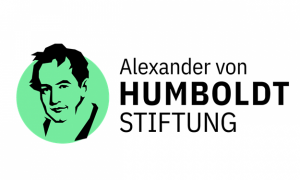
You are here
Humboldt Research Fellowship
Faculty of Transport and Traffic Sciences welcomes Dr. Esta Qiu and Ruben Kuipers as Humboldt Fellows at the Chair of Mobility System Planning.
The Alexander von Humboldt Research Fellowship offers researchers excellent opportunities for international networking, academic independence and personal development in their academic careers. In addition to financial support, scholarship holders benefit from cooperation opportunities with leading research institutions in Germany.
This year, the Faculty of Transport and Traffic Sciences welcomes two Humboldt Fellows at the Chair of Mobility System Planning. We spoke to Dr. Esta Qui from the University of New South Wales in Sydney and Ruben Kuipers from Lund University about their research stay.
LD: Welcome to our faculty, Esta and Ruben! What research topics are you currently working on?
EQ: My research focuses on the equitable allocation of transport resources. So historically the transport planning discipline has been quite efficiency driven, but there is a growing awareness in the importance of equity considerations as we prioritize and deliver infrastructure. At the moment, there's quite a theory and implementation gap in terms of how do we really incorporate equity into our decision-making processes. So my research focuses on operationalizing some of the more theoretical social science-related discussions on equity and how do we apply that to a more technical transfer engineering lens.
RK: My focus is on road safety at signalized intersections, with a specific focus on the interaction between cars and cyclists. We see a lot of conflicts between cars turning right and cyclists going straight. We want to investigate these situations using a mix of video observations and the evaluation of accident data. Accident data only shows when something has gone wrong, but often it almost goes wrong - and it is precisely these conflicts that we are looking at. And there will be a strong focus on comparing Sweden and Germany to see what we can learn from both places
LD: Are there already solutions to these conflicts between the different traffic participants?
RK: A lot depends on how we design transportation infrastructure. We often think that a certain design creates safety, but we want to investigate whether people actually behave as intended by the design. For example, there are certain cycle paths at junctions where you can see: there was an idea behind it, but in practice it just doesn't work that well. I want to uncover such frictions between planning and reality.
LD: What is it like for you to do research here at TU Dresden?
EQ: The scholarship gives us a lot of autonomy in defining the research scope and in finding collaborators. This freedom helps us to dive into our creative space - and I really appreciate that. I also find it impressive how much valuable research data is available here at the Faculty. The systematic data collection and access to traffic data allows you to really explore some of the research questions that you weren't able to do in the absence of the data.
RK: I haven't been here that long and I'm still finding my way around. But what you said also applies to me: the freedom. My PhD was a bit similar, no strong topic. You get an idea? Let's go out and do it! You're not so tied to fixed projects. This freedom is quite nice - even though there's a blueprint, it doesn't mean that it´s fixed what you're supposed to do. You need a bit of creativity in research, which brings up new ideas.
LD: What plans do you have for your time in Dresden - professionally and personally?
EQ: Professionally, I definitely would like to get to know more about how the transportation planning system works in Germany. I come from Australia, where we have much lower density and we are a lot more car-centric. There is certainly a lot we can learn from here. Outside of the professional life, I have noticed that many people here have a very healthy lifestyle - many go bouldering, running or cycling. I find that very inspiring. I live about five minutes from the Elbe and have started running along the river in the morning - it's beautiful.
RK: I would like to expand my network, which has so far been quite Swedish focused. I would also like to see a different research environment to learn from that as well. And I need to learn a bit more German!
LD: Thank you very much for the interview and all the best for your time at TU Dresden.
Originalautor
With the Humboldt Research Fellowship, the Alexander von Humboldt Foundation funds highly qualified researchers from various disciplines from all over the world. Fellows receive funding for their research project in Germany for a period of 6 to 24 months.

Contact
You need a bit of creativity in research, which brings up new ideas.
